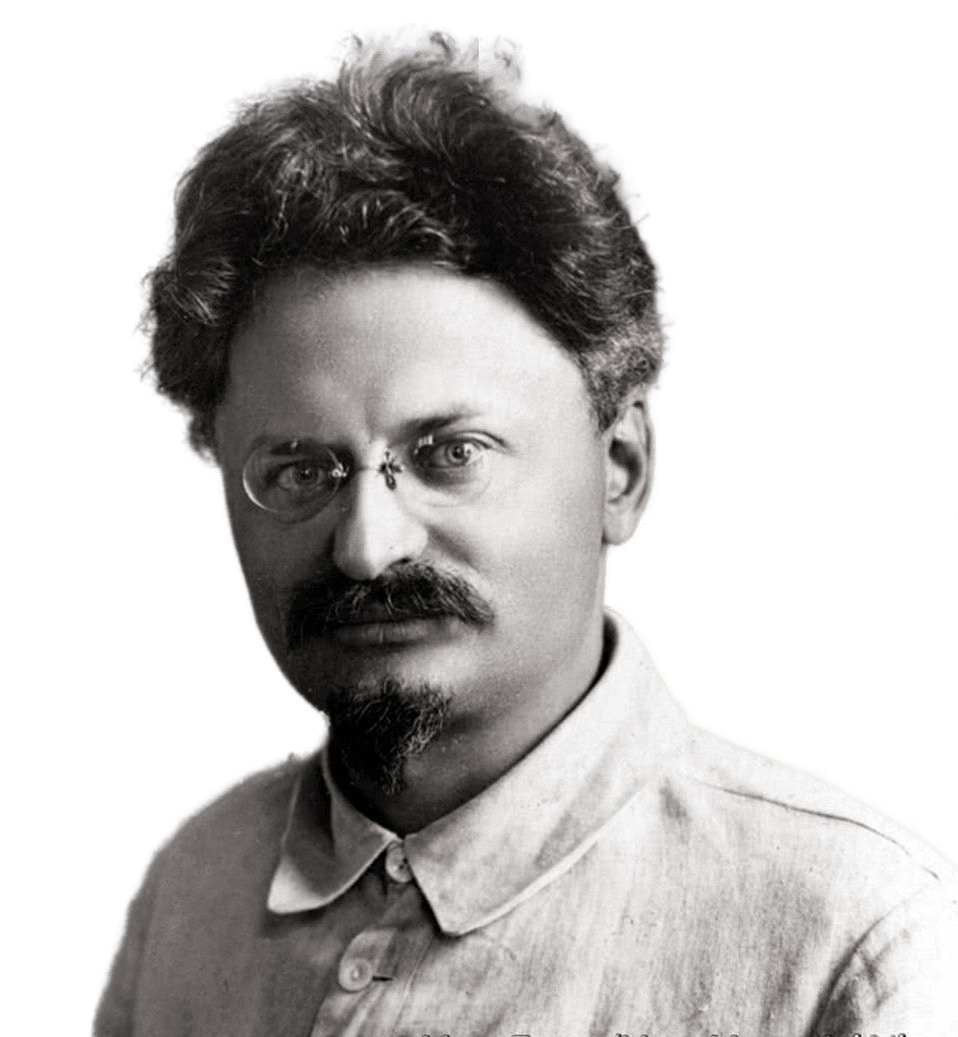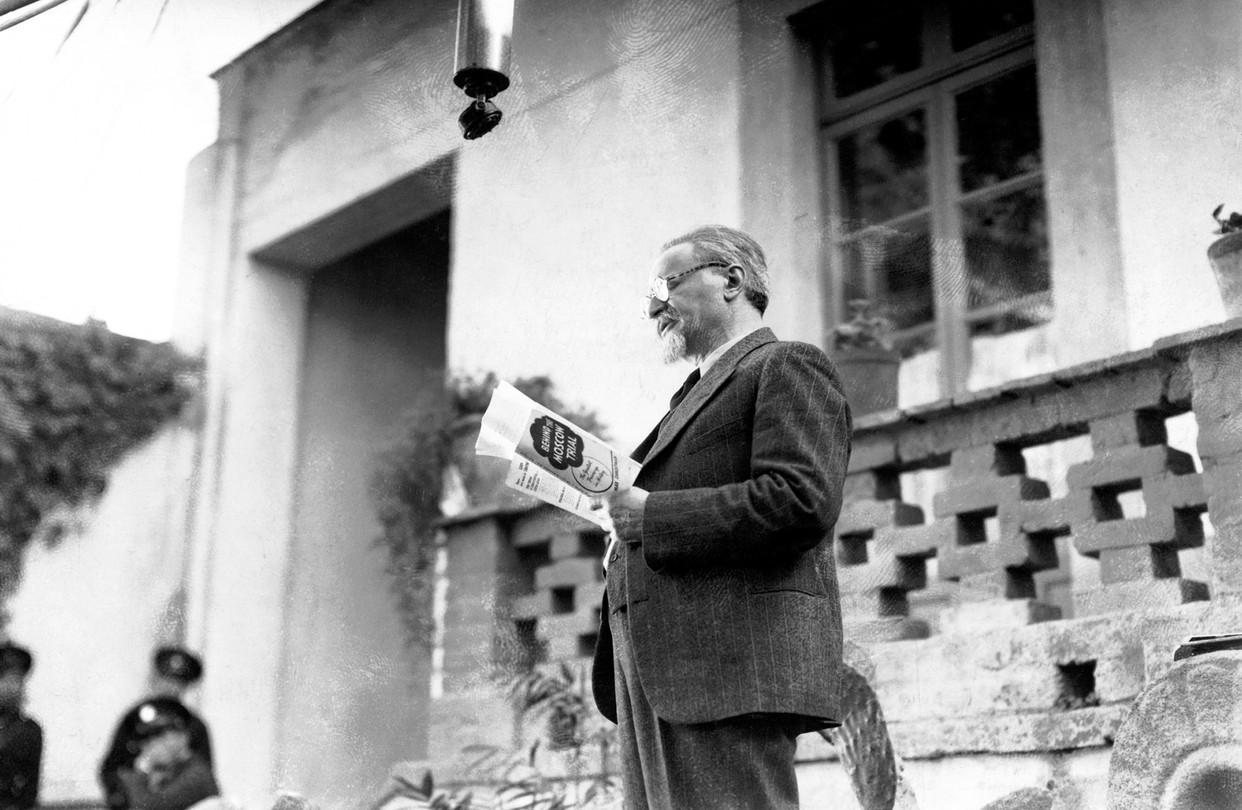
16.12.2022
Leo Trotsky never found a safe haven after his expulsion from the USSR.
“At dawn on January 22, Trotsky, his wife and son Lev were seated in a convoy bus, which set off on the rutted snowy road toward the Kurdai Pass. The pass itself was passed with great difficulty. Snow drifts raged, and the powerful tractor that had taken the bus and several vehicles in tow got itself stuck in the snow. Several of the escort died of hypothermia. Trotsky’s family was reloaded into the sleigh. The distance of 30 kilometers was overcame in more than seven hours. Over the pass there was a new change in the car, which took all three safely to Frunze, where they were loaded on to the train. In Aktobe Trotsky received a government telegram (it was the last government telegram, which was in his hands), informing him that the place of his destination was the city of Constantinople in Turkey “- so
Trotsky’s Influence
Historians and contemporaries of Trotsky argue that there was no more charismatic man among the political figures who rose in the wave of the revolution. He was impressive as an orator, as a publicist, and as an organizer. Trotsky, as the second man in the Bolshevik hierarchy, undoubtedly had a much greater influence on the October Revolution than Lenin. Logically, it was Trotsky who should have been at the head of the party after the death of the leader. However, despite all his virtues, victories and achievements during the Civil War, he was completely unprepared for the big game of chess in peacetime: factional fighting and backstage intrigue were best served by Trotsky’s sworn enemy -Joseph Stalin. Within a few years, Trotsky lost his credibility in the party, he was removed from all positions, sent into exile, and then into exile. For the case of Trotsky and the whole “Leninist Guards” as a whole, the clichés “revolution devours its children” and “the revolution is conceived by romantics and carried out by fanatics, but its fruits are used by scoundrels. Trotsky differs from Zinoviev, Bukharin, Kamenev and the others only in the fact that he is not in the foreground, but observes the repression as if from the audience. However, the bloody drama conceived by the director does not bypass him.
A Tireless Oppositionist
Despite everything – the exile, the death of loved ones and associates – Trotsky did not give up. Felshtinsky writes that not only was he not disappointed in his ideals, but he was convinced to the end that he had not made a single mistake on his way. He participates in the international revolutionary movement: in 1938 he proclaimed the creation of the Fourth International. At the same time, the ideologist of the revolution did not take responsibility for what was happening in the Soviet Union: Trotsky actively promoted the punitive machine of totalitarianism and blamed only “Stalinist bureaucrats” for everything.
In emigration, Trotsky wrote and lectured extensively. One of the best examples of his publicist writings is his article “Superborgia in the Kremlin”, written for the American magazine Life. He also works on the books “History of the Russian Revolution,” “What is the USSR and Where is it Going?”, “Stalin,” and others. Yuri Felshtinsky notes that “contrary to popular misconceptions, Trotsky does not present Stalin [in his books] as a paranoid villain. He focuses on the formation of the young Stalin’s personality (making extensive use of the memoirs of his friends), shows what attracted the unsociable seminarian to the camp of revolutionaries, and tries to understand and reveal the motives behind the actions and decisions of the hero of his book.
Descent
When Trotsky was deported, he was given about a thousand dollars. The unexpected “care” of the authorities, according to one version, can be explained as follows: this is the amount of money that the then all-powerful leader of the revolution gave as assistance in the early years of Bolshevik rule to Stalin, head of the then unimportant Commissariat of Nationalities.
A surprising fact is that Trotsky manages to take with him an archive that includes copies of the most important documents from his period in power, letters, Lenin’s notes and other papers. Some of the documents would be lost during his wanderings in Europe, and some would survive, ending up at Harvard University.
Trotsky’s life abroad could not be called calm. He was constantly waiting for attempts, Western society did not accept him with open arms: they were afraid of his activities against the capitalists. In 1933 he moved to France, then to Norway. He is not granted political asylum in Europe. As a result, in 1936
Trotsky goes to the last point of his journey – Mexico, where he finds refuge in the house of the artists Frida Kahlo and Diego Rivera.
Tragedy
Trotsky had four children, all of whom died during his lifetime. His daughter Nina died of consumption back in 1928. His second daughter, Zinaida, was exiled from the Soviet Union and committed suicide in Germany in 1933. Sergey Sedov, the younger son, refused to leave the USSR and in 1935 was condemned under “the Kremlin case”, after release worked at a factory, however in 1936 he was again arrested and then shot. Lev Sedov accompanied his father in exile and in 1938 he died in a Paris hospital after an operation. Some of Trotsky’s supporters believed that Lev Sedov was killed by Stalin’s agents.
Disaster
On August 20, 1940, Ramon Mercader, a NKVD agent who had infiltrated the disgraced revolutionary’s entourage, came to Trotsky to show him his latest manuscript. Trotsky sat down at the table and, leaning over, began to read. At that moment Mercader, who was standing behind him, struck him hard on the head with an ice pick, which he had discreetly carried under his overcoat. Despite the terrible wound, Trotsky lived another day, part of the time he was conscious.
A few days after the assassination, an obituary, “Trotsky’s inglorious death,” edited by Stalin, was published in the newspaper Pravda. The article denied the involvement of the Land of the Soviets in the assassination.
Ramon Mercader was sentenced by the Mexican authorities to twenty years in prison. In 1960, after his release from prison and arrival in the USSR, he was awarded the title of Hero of the Soviet Union and the Order of Lenin.
You may also like:
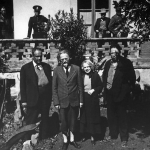
16.12.2022
1923. Lenin's withdrawal from business. Beginning of active struggle for power
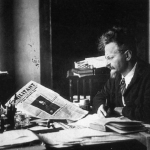
16.12.2022
Trotsky in the last years of Lenin's life. Beginning of the struggle for power within the RCP(b)
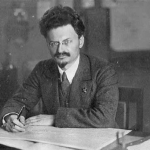
16.12.2022
Lev Trotsky: the most brilliant revolutionary
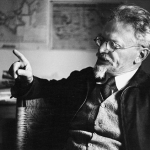
16.12.2022
Lev Davidovich Trotsky - interesting facts from his biography
